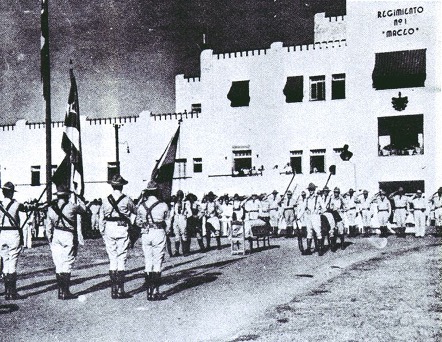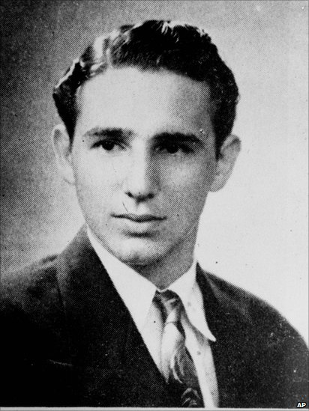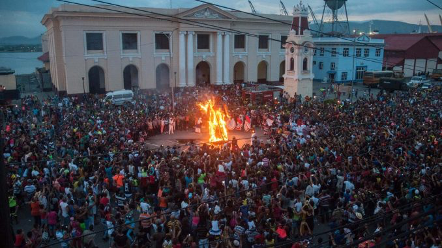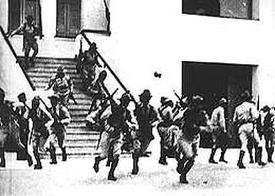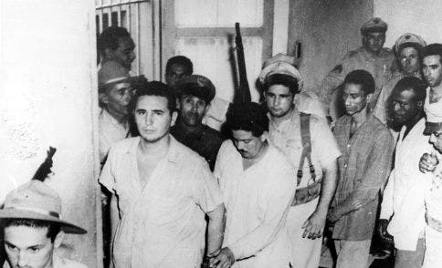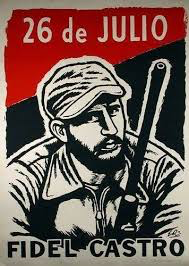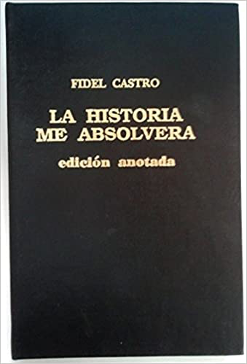(1/12) I am composing a thread for my history class on dictatorship in Latin America
This thread will cover the Moncada Barracks Assault, its aftermath and its significance to the Cuban Revolution.
@mamoralesf
#LADisctatorshipsUL20
This thread will cover the Moncada Barracks Assault, its aftermath and its significance to the Cuban Revolution.
@mamoralesf
#LADisctatorshipsUL20
(2/12) Some background: Fulgencio Batista ran for president in 1952. Once it seemed certain that he would lose, he led a military coup and took the office by force. After taking power, Batista utilized his police force to torture and execute dissidents. https://www.historytoday.com/archive/months-past/coup-cuba">https://www.historytoday.com/archive/m...
(3/12) Fidel Castro was a young Cuban lawyer who had been a vocal opponent of the Cuban government. After Batista took power, Castro went into hiding and began to plan an attack.
(4/12) Castro knew that he needed soldiers and weapons to have any chance of a successful revolution. This is why he decided to storm the Moncada Barracks—the weapons inside could be used by his revolutionaries if the attack was successful.
http://www.fidelcastro.cu/en/entrevistas/strategy-attack-moncada-garrison-interview-swedish-tv">https://www.fidelcastro.cu/en/entrev...
http://www.fidelcastro.cu/en/entrevistas/strategy-attack-moncada-garrison-interview-swedish-tv">https://www.fidelcastro.cu/en/entrev...
(5/12) The Festival of St. James took place on July 25th, 1953. Castro decided to storm the barracks the following day in the hopes that many of the soldiers would be hungover or still drunk from the festival.
(6/12) The plan was for the rebels to drive into the barracks in military uniforms, take the weapons they could and leave before other military units could respond. Castro hoped that the news of the attack would encourage locals to join his guerilla army.
https://www.alamy.com/uniforms-worn-by-the-attackers-moncada-barracks-museum-in-santiago-image5526861.html">https://www.alamy.com/uniforms-...
https://www.alamy.com/uniforms-worn-by-the-attackers-moncada-barracks-museum-in-santiago-image5526861.html">https://www.alamy.com/uniforms-...
(7/12) On July 26th, 1953, Castro and his 138 rebels drove to Moncada. One car made it inside, but the guards sounded the alarm and the rebels fell under attack before most of them could get into the compound. Seeing that the assault was hopeless, Castro called for a retreat.
The rebels managed to kill 19 soldiers, but ultimately did not succeed in rounding up weapons for their guerilla force. All of the captured rebels were brutally tortured and killed. Fidel and his brother Raúl were able to evade the troops for a few days. https://www.cubasupport.ie/latest/moncadas-significance-in-cuban-revolutionary-history/">https://www.cubasupport.ie/latest/mo...
(9/12) News of Batista’s soldiers ruthlessly torturing and killing the rebels spread quickly. By the time Fidel and Raúl Castro were captured, Batista knew that executing them would lead to more unrest. Instead, he had them tried and imprisoned.
(10/12) The trial was widely publicized by Batista in an effort to discourage others from following in Castro’s footsteps. However, this plan backfired. Castro delivered a powerful speech titled, “La Historia Me Absolverá” (History Will Absolve Me). https://www.nytimes.com/1964/04/05/archives/cuban-is-reported-executed-castro-role-at-trial-studied.html">https://www.nytimes.com/1964/04/0...
(11/12) Castro was sentenced to 15 years. In 1955, Batista was pressured to release political prisoners like Castro. After being freed, he fled to Mexico and organized an army of revolutionaries that would go on to topple Batista’s government in 1959.
https://jackdurish.com/jacks-blog/bayo ">https://jackdurish.com/jacks-blo...
https://jackdurish.com/jacks-blog/bayo ">https://jackdurish.com/jacks-blo...

 Read on Twitter
Read on Twitter